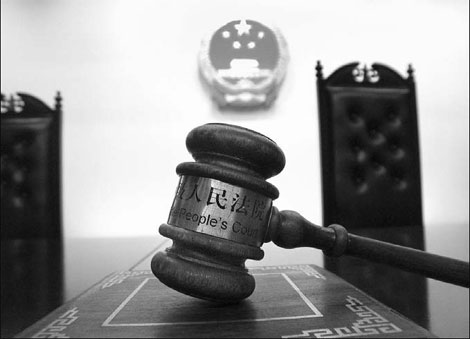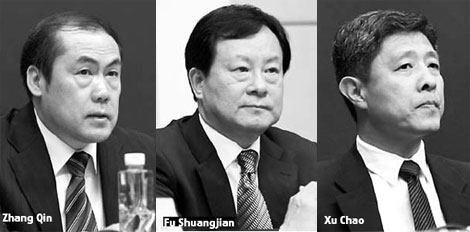


The Compendium of China National Intellectual Property Strategy, released on June 5, is expected to set the foundation for the proposed revision of China's outdated copyright, trademark and patent laws.
The compendium has set the "strategic" goals to complete the revision by 2020.
At a news conference on June 13, three senior government officials commented on the schedule of revision of the Intellectual Property Law. The following are excerpts of their comments:
The process of revising and amending any law is always complicated. This is particularly so for the Intellectual Property law partly because we are still uncertain whether we should enact such laws as the Uniform Intellectual Property law or Basic Intellectual Property law.
If we come to a conclusion that China needs those laws, then we will discuss when we will begin the process of legislation. And of cause we will come to a conclusion about those issues before 2020.
-Zhang Qin, deputy commissioner of the State Intellectual Property Office of China
China's first Intellectual Property law is the Trademark law, which was enacted in 1982 and became effective in 1983. After amending that law in 1993 and again in 2001, we believe we have greatly heightened the trademark awareness of the Chinese people.
Since then, China has opened its door wider to the rest of the world, requiring another revision of the Trademark Law, a process that has been included in the NPC's agenda for the next five years.
Indeed, we have begun preparation work for amending the Trademark Law based on the ideas to shorten the trademark review cycle, consummate the intellectual property rights confirmation, intensify the protection of trademark intellectual property rights and enhance the level of service to trademark register enterprises.
We also take the international trademark treaties into account, seeking to frame the new trademark law in accordance to international standard. We are now working hard to complete the first draft by the end of 2008 as required by the legislative affairs commission of the NPC Standing Committee.
-Fu Shuangjian, vice-minister of the State Administration for Industry and Commerce
In relation to the present Copyright Law, we will have to establish two new administrative regulations. One is to require broadcasters, including radio and television, to pay for playing copyrighted records. The rates of such payment have yet to be determined by the State Council. The other is to establish the folk literary and artistic protection regulation, which is listed in the State Council lawmaking process. We have the responsibility to complete the drafting as soon as possible.
Copyright Law went through a series of amendments before China's entry into the WTO. In their present form, the articles in China's Copyright Law have fully complied with the WTO intellectual property right agreement. But after considering the rapid changes in the marketplace, the National Copyright Administration took the view that there is the need for another revision of the relevant law although the proposal has not yet been included in the State Council's legislative revision plan.
There are several factors that called for further improvements of the Copyright Law:
From 2001 the country's social, economic and legal environment has gone through great changes, which have taken matters beyond the scope of the present China Copyright Law. The Copyright Law should continue to evolve to meet the changing demand of the market economy.
The challenges posed by new technologies need to be addressed in new Copyright Law. Especially the problems arising from the wider use of the Internet, which must be better regulated.
In the revision, we need to solve various practical problems arising from the application of the law in recent years.
-Xu Chao, deputy director of National Copyright Administration

(China Daily 06/30/2008 page9)













